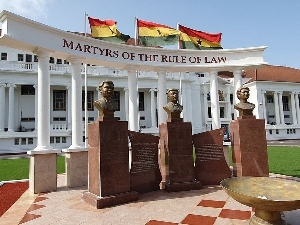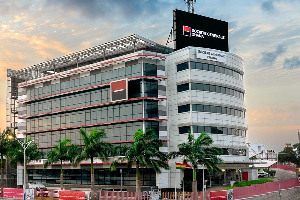Opinions of Friday, 24 November 2023
Columnist: Abukari Majeed
Is the 24-hour economic policy proposal doable in Ghana?
Let's delve into its possibility, doability, and achievability. How possible can it be — the pros, and impossible — the cons? If it is therefore possible, it is doable and achievable. However, if it is impossible, then it's not doable or achievable.
Devoid of political sentiments, let's premise the foundation of the 24-hour economic policy proposal on two major scales. Thus, the macroeconomic and microeconomic environments of Ghana, first and foremost. What are the statistics of the inflation, exchange rates, interest rates, GDP, etc., and juxtapose these economic fundamentals to the microeconomic environment of this country, that's, the state of businesses in Ghana. Are private businesses to have the necessary ambiance to survive higher inflation, higher interest rates, higher exchange rates, lower GDP, etc.?
Because, both the macroeconomic and microeconomic environments go hand in hand in the life of every economy. Ideally, the microeconomic environment reflects on the macroeconomic environment to have a resilient economy. And so, if you don't have good policies in this phase, then the ramifications are that you have higher inflation, higher interest rates, higher exchange rates, and a lower GDP rate.
The 24-hour economic policy proposal seeks to address the concerns of the micro phase which will unequivocally brace up the macro phase of the economy since they behave like conjoined twins.
How do you apply a bottom-top approach to creating a better business atmosphere? Any government in a deliberate attempt trying to conceive and incubate policies that are seasoned, doable, and achievable to ameliorate the challenges businesses are facing because of the weaknesses in its macroeconomic fundamentals needs to have a resilient microeconomy to change the narrative. And one of such immediate next-door policies is to invent a 24-hour economy to help businesses to survive.
What is the survival rate of this policy, if Ghanaians may ask? 24-hour service in the private sector of the economy will anchor on job creation for the teeming unemployed youth, tax incentives to businesses, subsidies on utility bills to businesses, security visibility, development, etc. Therefore, if businesses are very lucky to have these kinds of respite from the central government, the economy is good to go — flourish.
Many people will be recruited into the police service to provide security to stores and companies operating during the night. And before these stores and companies operate at night, they'll obviously need to employ new staff to run on shifts. This will surely create investments which shall eventually open up the economy.
However, the hurdle after all these is centered on the constant flow of water, reliable supply of electricity, and the visibility of police to prevent crime during the night. These are the questions that have to be answered by the proposers of this novel policy. Which, I believe, has been incorporated into the blueprint of the 24-hour policy.
Note therefore that, if this policy, which I described as a social intervention policy is not rushed like the Free SHS policy, but carefully implemented, it's going to serve as a game changer.
Is the policy novel?:
I have argued a point about the essential services every country is unable to do away with. These critical services are security and health services. If you open your borders, foreigners may take over your country. Furthermore, crime shall be high in the system. And so, the constitution already guarantees it. When it comes to the health sector, patients are monitored for 24 hours. Which makes them compulsory to run on shift.
However, when there is a policy proposal to run the economy bottom-up. What does this mean? Through legislation to give tax incentives and subsidies to small and medium scale businesses on goods and services to be able to deliver 24-hour services. Running this nature of the economy is new in Ghana. We have never had a situation where any government would throw out such incentives to business owners.
Moreover, If legislation is coming in to streamline this policy, it means such policy must go through both legislative instrument(LI) and executive instrument(EI) to be enforceable. I.e. Nasam Ventures under the new policy is operating 24 hours because the enterprise is enjoying tax and electricity subsidies.
Thus, it's entirely new to the microeconomic environment. Which makes it a novelty.
Again, Free SHS didn't start under NPP. It was piloted progressively before it was made entirely free by the Nana Addo government.
Question, can I say the free SHS policy was a policy made by the NDC? No.
In the constitution, it was stated that “progressively free”, but the NPP amended that and made it free.













